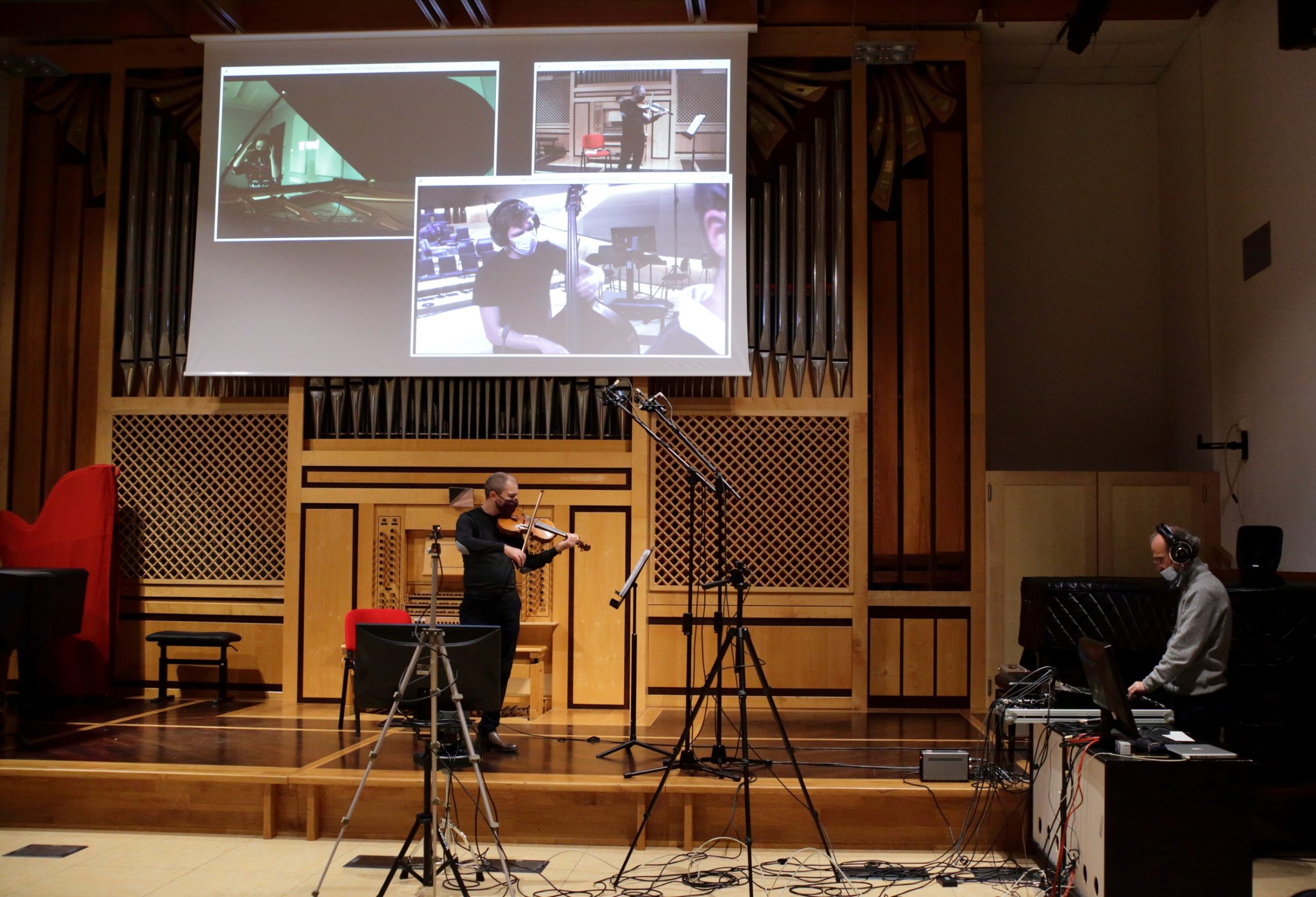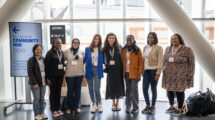Words: Carlo Volpe, GARR
For the first time, the musicians of a jazz trio played simultaneously from three different locations – Tallinn, Trieste and Vienna – thanks to LoLa 2.0 (Low Latency) technology and research networks connectivity.
Three soloists, three different cities: ‘one music’ and one jazz trio. It’s the innovation we witnessed on Friday 6 November 2020, during the annual congress of the Association Européenne des Conservatoires (AEC), this year completely online.
It was the first time for LoLa 2.0, the new version of the high-quality video and audio system developed by the Tartini Music Conservatory of Trieste, and GARR. Lola was designed to enable musicians to play remotely together and support remote teaching overcoming geographical boundaries and reducing distance-related latency up to an imperceptible level. Playing music simultaneously between two locations was already possible with the first version of LoLa; with this new version it is possible to connect three different locations at the same time and use up to 4 cameras in each location for an improved experience, both for live performances and remote teaching.
Extending the number of locations offers significant advantages from the teaching point of view and encourages new collaborations between conservatories at international level. LoLa 2.0 was first demonstrated on 6 November as part of the Congress of the European Conservatory Association: the violinist Sebastiano Frattini performed from the Tartini Conservatory of Trieste and played in a trio with the double bass player Christian Kalchhauser (connecting live from MDW in Vienna) and pianist Kirke Karja (connecting live from the Estonian Academy of Music Theatre in Tallin).
Attendance was restricted to registered participants and the recording of the concert is available on YouTube, on the Tartini Conservatory’s social media channels and on GARR TV.
The SWING project played an important role in this achievement as it exploited the new technological solutions. SWING is funded under the Erasmus + programme and since 2018 it has been working to create a new profile of music teachers, able to work with the most advanced ICT technologies to enrich music teaching. Its goal is also to enrich technology itself with the contribution of teachers and students, and to evaluate the technological impact on pedagogy for performing arts.
“Launching innovative initiatives is always exciting”, says Claudio Allocchio, coordinator of the SWING project and GARR Senior Technical Officer . “It means being able to respond to well-defined needs. In the SWING project we have continuous interaction between teachers and students, both using and developing the technology. This approach is essential to work on what is really needed”.
“The Tartini Conservatory – explains Director Roberto Turrin – is proud of LoLa, a technology used over time with excellent results, even on the occasion of an event promoted by the global Global Music Education League network (founded in 2017 in Beijing to bring together music scholarship authorities from around the world). In 2020, with the pandemic that made remote interaction such a pressing need, a further enhanced LoLa was able to provide additional value, confirming the Tartini Conservatory as a cutting-edge institution among musical training institutes in Italy and the world, for the adoption of new technologies applied to music education”.
The SWING project is coordinated by GARR with the participation of a number of influential European institutions for music teaching: the Tartini Conservatory of Trieste, the Academy of Music of Ljubljana, the University of Music and Interpretive Arts of Vienna (MDW), the Association of European Conservatories and Musical Academies (AEC). The Royal Danish Academy of Music and the Verdi Conservatory of Milan also contribute as associated partners for musical and educational aspects, whilst the Polytechnic University of Milan and ARNES, the Slovenian Research and Education Network, for technological aspects.
The jazz trio performance on 6 November 2020 was an integral part of the AEC Congress programme entitled “Connecting Communities in the Digital Age” which includes workshops, discussion forums, best practices presentations, panels and plenary sessions dedicated to representatives of higher music education institutions in Europe and beyond. The AEC association is a network that comprises over 300 institutions in 57 countries.
Click here to enjoy the recording of the concert!







